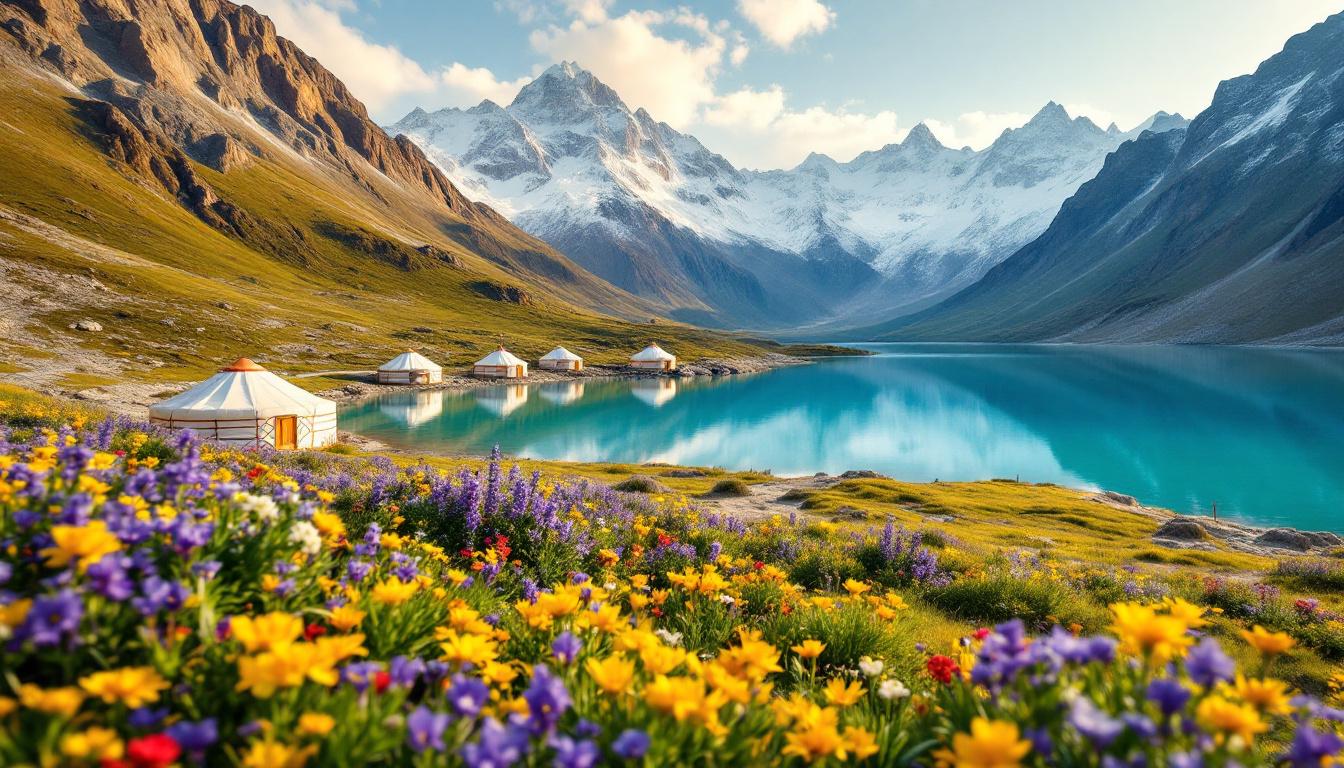Most travelers rush through China’s famous Silk Road cities, missing the only place where ancient trade routes meet pristine alpine wilderness. While Xi’an crowds around replica pagodas, Urumqi quietly guards access to crystalline lakes nestled at 6,600 feet in the Tien Shan mountains.
This remote capital of Xinjiang offers what no other major Silk Road hub can deliver: the unique combination of authentic cultural heritage and dramatic high-altitude natural beauty. Where else can you explore traditional Kazakh yurts in the morning and cruise sapphire waters surrounded by snow-capped peaks in the afternoon?
After 25 years photographing hidden corners of the world, I can confirm that Urumqi stands completely alone in this remarkable geographic positioning. It’s the only major Silk Road city offering direct access to multiple alpine lake systems while preserving 12 distinct ethnic cultures in their authentic mountain homeland.
The exclusive alpine access other Silk Road cities lack
Heavenly Lake’s pristine mountain sanctuary
Just 90 kilometers from Urumqi’s bustling bazaars, Heavenly Lake (Tianchi) stretches 3.4 kilometers through a dramatic mountain valley at 1,980 meters elevation. This crescent-shaped alpine jewel reaches depths of 105 meters, its sapphire waters reflecting snow-capped Bogda peaks that soar to 2,400 meters above.
Sayram Lake’s massive high-altitude expanse
The region’s crown jewel, Sayram Lake, spans an incredible 458 square kilometers at 2,072 meters elevation, making it Xinjiang’s largest alpine lake. No other Silk Road capital offers such easy access to this scale of pristine mountain water, where crystal-clear depths create perfect reflections of surrounding grasslands and wildflowers.
The authentic cultural preservation Xi’an has lost
Living Kazakh traditions around sacred waters
Traditional Kazakh herding families still maintain seasonal camps around Heavenly Lake, their decorated yurts featuring hand-woven rugs and colorful wall hangings passed down through generations. Unlike commercialized cultural shows elsewhere, these communities welcome respectful visitors into genuine daily life, sharing traditional meals with stunning lake views as backdrop.
Tuwa village authenticity in pristine wilderness
The nearby Tuwa ethnic communities continue living in traditional wooden houses, practicing ancient customs that have disappeared from other Silk Road regions. Their children still learn ancestral languages while helping with livestock, creating cultural encounters impossible to find in China’s tourist-heavy destinations.
The practical advantages that matter most
Transportation freedom without tourist masses
Multiple transport options serve these alpine destinations: direct buses via Fukang (1.5 hours), private taxis (2 hours), or organized tours with English-speaking guides. Unlike overcrowded Xi’an attractions requiring advance booking and lengthy queues, Urumqi’s lakes welcome spontaneous exploration year-round.
Adventure activities unavailable elsewhere
Circumnavigation hiking trails, cable car rides to Maya Mountain overlooks, and boat cruises across crystal waters create adventure combinations no other Silk Road city offers. Buddhist temples dot the shorelines, providing spiritual experiences framed by dramatic mountain scenery rather than urban pollution.
The seasonal transformations that create magic
Spring and summer alpine paradise
From late April through October, these high-altitude lakes transform into wildflower-surrounded sanctuaries where traditional festivals celebrate ethnic heritage against backdrops of pristine natural beauty. The remarkably fresh mountain air and peaceful landscapes create what locals describe as “heaven-like” conditions.
Winter’s dramatic ice transformation
Winter brings complete metamorphosis as the lakes freeze into vast ice expanses, creating unique photography opportunities and traditional ice activities impossible in other Silk Road destinations. Snow-covered peaks reflect in partially frozen waters, forming landscapes of almost ethereal beauty.
Urumqi’s position as the world’s only major Silk Road capital with direct alpine lake access creates travel opportunities that simply don’t exist elsewhere. While other ancient trade cities struggle with overtourism and commercialization, this mountain-ringed metropolis preserves both natural wonder and authentic cultural traditions.
The combination of multiple ethnic communities, pristine alpine wilderness, and genuine Silk Road heritage makes Urumqi irreplaceable for travelers seeking experiences beyond the ordinary. Book your journey during late spring or early fall when weather conditions optimize both cultural encounters and mountain adventures in this unique corner of the ancient world.
